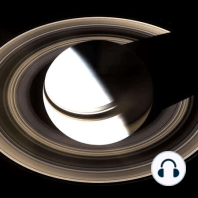89 min listen

Will the 21st Century be the Time we Discover Life Beyond Earth (with Dr. Jill Tarter)
Will the 21st Century be the Time we Discover Life Beyond Earth (with Dr. Jill Tarter)
ratings:
Length:
74 minutes
Released:
Oct 21, 2021
Format:
Podcast episode
Description
Craig Venter & Daniel Cohen suggested that if the 20th century was the century of physics, the 21st century will be the century of biology on our planet. Jill Tarter believes that their idea will be extended beyond the surface of our world, and that we may soon have the first opportunity to study biology that developed on other worlds. In this lecture, recorded in 2017, she talks about her vision of the future of understanding life on Earth and beyond our planet. And she discusses projects that are underway and are planned to learn more about the possibility of intelligent life among the stars. The talk also celebrated the publication of the book "Making Contact" (by Sarah Scoles) about Jill Tarter's life and work.
Released:
Oct 21, 2021
Format:
Podcast episode
Titles in the series (45)
The Hunt for Dark Matter in the Universe with Dr. Tom Shutt by Silicon Valley Astronomy Lectures